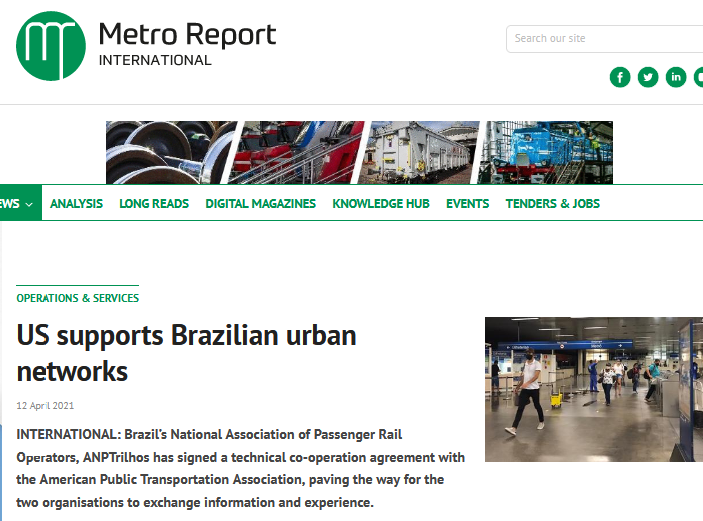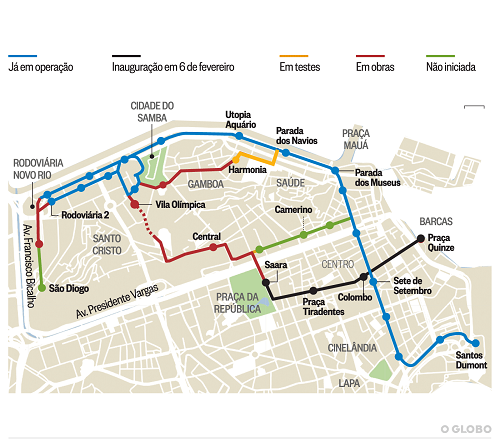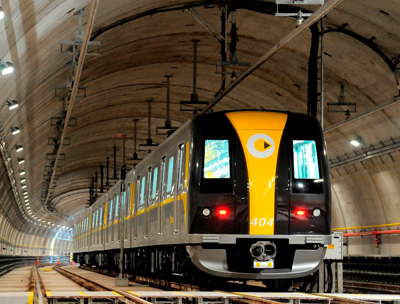Brazil’s National Association of Passenger Rail Operators, ANPTrilhos has signed a technical co-operation agreement with the American Public Transportation Association, paving the way for the two organisations to exchange information and experience.
Using a videoconference link, Executive Director of ANPTrilhos Roberta Marchesi noted at the virtual signing on April 7 that the agreement would aim to give Brazilian operators a better understanding of the financing model of the American public transport sector.
For his part, APTA President Paul Skoutelas highlighted the importance of exchanging experience between the two countries in the public transport sector. It was essential, he said, ‘to know more about the methodology of Brazilian public-private concessions and partnerships, which are a successful model’.
ANPTrilhos has also been awarded two grants by the US Trade & Development Agency that are intended to improve energy efficiency and asset management on urban rail networks. The grants will fund two technical assistance programmes. These are intended to help ANPTrilhos to plan for and invest in modern information and communications technology to optimise maintenance and identify ways to enhance energy efficiency.
‘Public passenger transport has experienced a severe crisis worldwide’, explained ANPTrilhos CEO Joubert Flores. ‘Our co-operation with USTDA will improve efficiency and reduce costs related to asset and energy management, preparing Brazil’s passenger rail systems for a faster recovery after the COVID-19 pandemic.’ The member organisations of ANPTrilhos together account for 10∙9 million passenger trips a day.
Announcing the awards on March 29, USTDA Acting Director Enoh T Ebong said his organisation was proud to support the vision offered by ANPTrilhos. ‘US companies offer world-leading solutions in this space and are eager to partner with Brazil as it continues transforming its rail infrastructure to meet the demands of its customers. Our collaboration with ANPTrilhos is helping to make that happen.’
12 April 2021 – Metro Report International / Railway Gazette International




